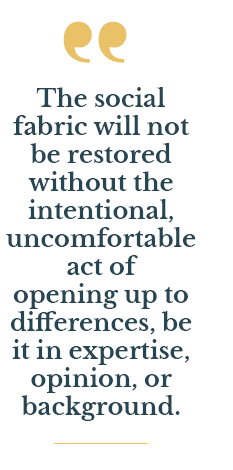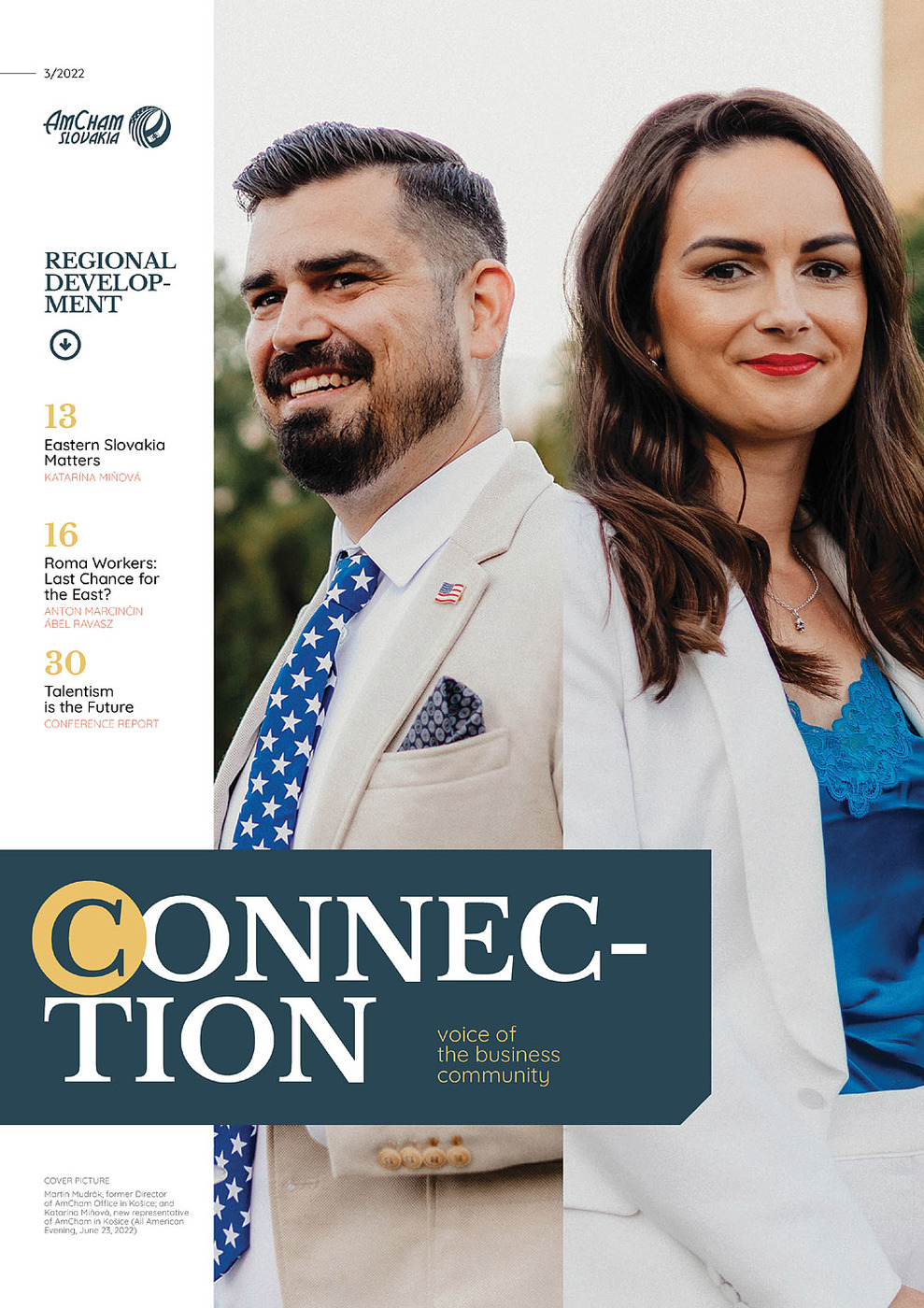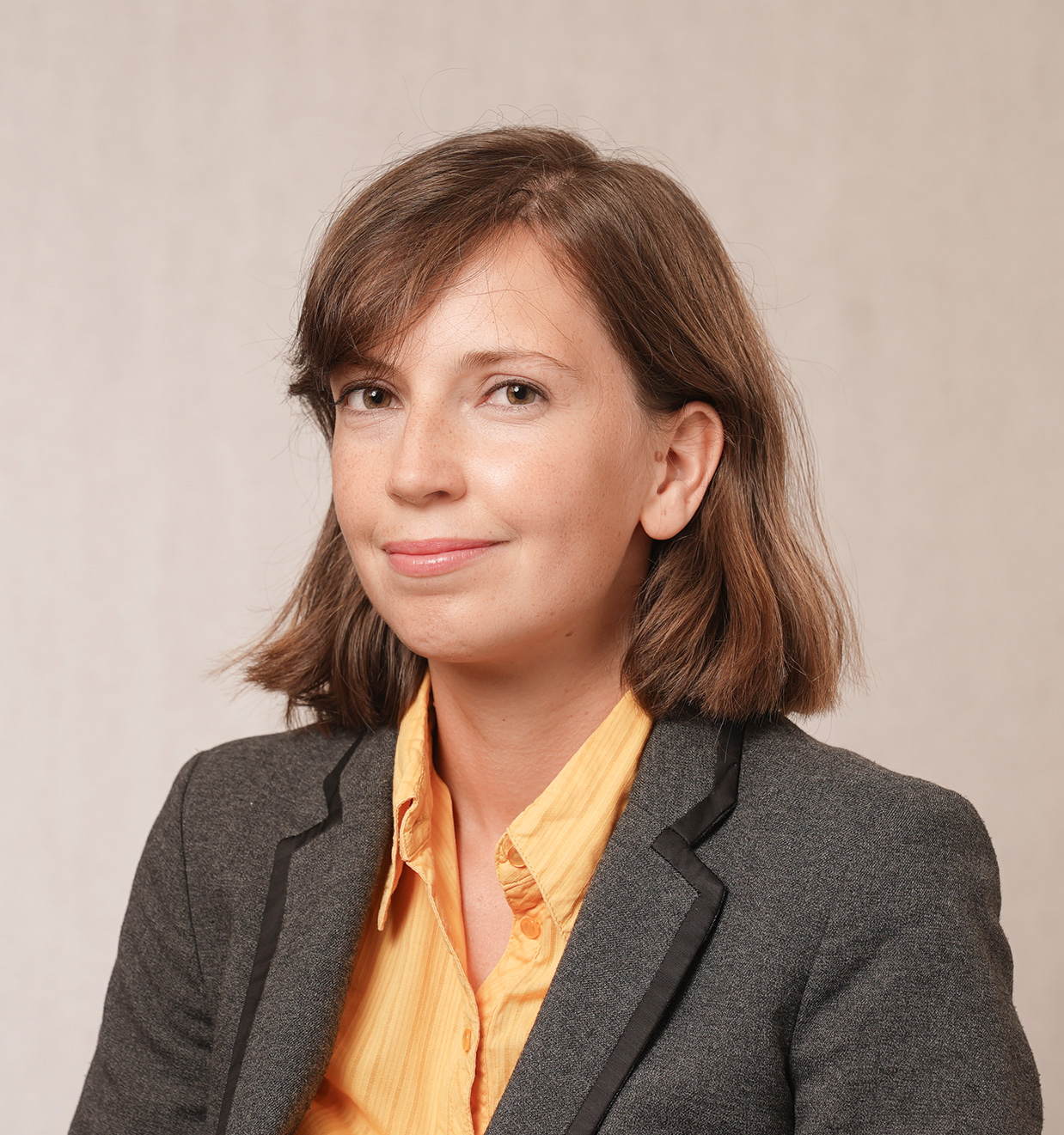As human beings we actively seek connection, be it for personal or business purposes, so networks, hubs, ecosystems, and communities grow like mushrooms. However, in the pursuance of our goals, we tend to fall for the intuitive - birds of a feather, flock together. Though this type of gathering has its specific purpose, comfortable silos gathering the same old faces coming to the same old conclusions fuel the separation and tend to maintain the status quo. The competence that is lacking is the willingness and ability to accept the “otherness”. The social fabric will not be restored without the intentional, uncomfortable act of opening up to differences, be it in expertise, opinion, or background. It is a skill and the whole country needs to be trained in it, the skill that is inevitable for survival in the unpredictable future. Two actionable steps can lead us to this goal.
Step one is to leverage the fora, which are naturally predisposed for breaking the “bubbles” such as workplaces and academic campuses. The eminent demonstration of “otherness” that could be seized as an opportunity is (the lack of) international talent across the whole country. Employers, driven by the desire to succeed in a globalized market, should engage in conscious creation of work conditions that encourage internationalization, such as building proficiency in other languages among staff or, should the nature of business allow, leveraging virtual tools to enable the inflow of skills and know-how from abroad. The same applies to Slovak universities, which should stand at the forefront of the battle for international talent, motivated by their mission to become the breeding ground for exchange of ideas among talented individuals regardless of their origin but also by the massive brain drain of Slovak students. Though it is not the regular occurrence now, in the years to come progress is expected in the area, since universities may access funding for this very purpose from the Recovery and Resilience Facility.  Nevertheless, the mere presence of diversity in a physical (or virtual) space does not suffice, bringing us to step two for building bridges - designing processes that actively facilitate the dialogue. Taking a recent example, a team of Slovak civil servants responsible for research and innovation has invited over 80 participants from various fields and places to brainstorm the measures for the national strategy.
Nevertheless, the mere presence of diversity in a physical (or virtual) space does not suffice, bringing us to step two for building bridges - designing processes that actively facilitate the dialogue. Taking a recent example, a team of Slovak civil servants responsible for research and innovation has invited over 80 participants from various fields and places to brainstorm the measures for the national strategy.
The carefully crafted participative process encouraged the much-desired exchange between stakeholders who, under normal circumstances, would find themselves on the opposite sides of the negotiation table. For such endeavor to be successful, a combination of an open mind and the right set of tools is necessary.
The atomized society we live in should not be accepted as the new normal. Taking deliberate steps to open up is the only way forward for a small country of five million. We can be only enriched by joining (and creating) opportunities for the different worlds to collide - be it through collaboration between regions, sectors, companies, communities or individuals. As with any other skill, all it takes is practice.
Viktória Skřivánková, Project Manager for Attracting and Retaining Talent, Recovery and Resilience Facility, Cabinet Office
Viktoria oversees implementation of the component 10 “Attracting and retaining talent” of the Slovak Resilience and Recovery Facility at the Cabinet Office. Previously, she served as the head of the program at LEAF, a Slovak NGO where she designed and implemented activities aimed to turn the brain drain to brain circulation. Before returning to Slovakia, she trained at the Office of the European Ombudsman in Brussels and Strasbourg, providing legal advice on good public administration and transparency to EU institutions, building upon the knowledge she gained while she pursued studies in law, human rights and EU law in the United Kingdom and the Netherlands.



Follow us